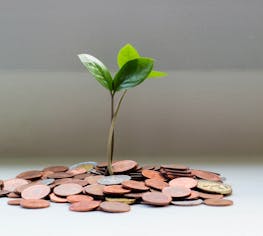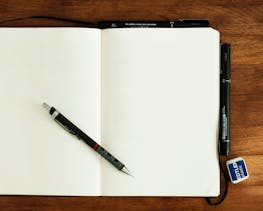Financial investment and dealing with money don't come naturally to a lot of people. Did you know that recent studies show that 80% of Americans are caught up in some kind of debt? That's a whopping eight out of ten people who aren't financially independent.
The Barefoot Investor offers a step-by-step plan that not only eliminates debt, but also shows how to build and generate wealth. It illustrates that the long-term rewards of starting now, and taking some time to focus on finances, far outweigh the initial apathy.
Scott Pape, otherwise known as the Barefoot Investor, lives in Melbourne Australia, and has been teaching Australians how to manage their wealth through radio, print, and television. The Barefoot Investor is a bestselling manual that's pragmatic and engaging, and holds true to Pape's belief that everyone should have financial freedom. Pape was inspired by his father, who, on hearing he was going into finance, said, 'Just make sure you don't become a wanker. Look after the battlers, son.'
This Briefer summary will guide us through Pape's step-by-step process of achieving financial security and becoming a lot savvier with our money. We'll also learn why we should become alpacas rather than groundhogs.
Forget Groundhog Day; Every Alpaca Should Have Their Day
According to our Barefoot Investor, there are two kinds of people – groundhogs and alpacas. Most of us are groundhogs because we shy away from dealing with finances, we procrastinate, or we look for quick fixes. If you're a groundhog, look in the mirror and make the decision to change your financial spirit animal immediately.
Alpacas work hard to protect assets. Pape saw this on his farm when his two alpacas protected a flock of sheep from a fire. We need to apply this attitude to our finances and put in the work to preserve our wealth. But you might be thinking, 'That's easy for you to say, I don't have any wealth,' or 'I don't have a finance brain; this is beyond me.'
But, our author explains that there are no excuses – be an alpaca and get to work.
You Won't Do It If You Don't Set a Date
Now that you've embraced the spirit of the alpaca, you're ready to start dating. For the next five weeks, you need to set aside one night a week to think about or discuss your finances. If you have a spouse or a partner, they should also make the time.
Pape says you need to do this at a restaurant, or in a "date-like" environment. Book a table at a restaurant and build up the expectation that this is something to enjoy. Whether you're alone, with a partner, or with a friend, financial dates shouldn't be a chore. Although having a financial date in a restaurant may seem counter-productive or extravagant, the long-term payoff makes up for it. Furthermore, we need to be incentivized to discuss finances, because most of us avoid it at all costs. Plus, there's the added bonus of spending time around others, which is enriching.
After the initial five-week period, schedule one financial date night per month – and the key is not to blow it off. The more regularly you manage your wealth, the faster you'll see rewards.
The initial five date nights scaffold your plan moving forward. The first date night, for example, looks at the importance of having different accounts for different purposes. You need to open one for basic expenses, one for treats and non-essentials, one for long-term purchases on things that'll bring you happiness, one for pressing needs like buying a house or paying off debt, and one for emergencies. Depending on where you live, you might need to consider which banks offer the best interest rates and returns, and which have good options for long-term savings like your "happiness fund."
The next couple of date nights will prepare you for choosing the right retirement fund, superannuation, and researching cost-effective options. You'll also need to assess your insurance options, as well as what's worth insuring, and what's not. The advice here is, 'if losing it won't affect your financial situation, don't insure it.'
You Can't Do Anything Without a Plan
Never underestimate the power of a plan. And while some things don't go according to plan, you can't leave your finances up to chance. In order to save money, you need a plan – it's why at the bank they're called saving's plans.
This plan should be simple and should only take up a small sheet of paper. Our author calls it the "napkin plan" because it should fit onto a serviette. Divide the napkin into three categories: blow, grow, and backstop.
To begin with, we'll deal with blow. When you get your salary, it'll get paid into your basic account, the one that you use for basic expenses. 60% of your salary will stay in the account and will be spent on your daily living costs such as bills, mortgage, transport, insurance, and so forth. This leaves you with 40%.
The 40% should be divided and automatically moved into your different accounts. 10% should go into non-essential treats, 10% into long-term purchases, and 20% into pressing needs. Of course, life doesn't always go to plan, and you might need to change how funds are allocated. This is why you need to have a plan, and meet regularly to see how everything is looking. When we take our eyes off our finances, this is when things start to unravel.
The categories grow and backstop involve everything in the long-term. You need to have investments that grow your money, and you also need to have an emergency backstop fund that you never touch. This backstop money will help you if you lose your job or have to pay out money for anything urgent and unforeseen.
Climb Out of the Debt Hole
Getting into debt is a problem many of us are likely to face. The problem is, once we're in debt, it tends to spiral out of control. Before we know it, our money is being paid on interest, and we lose control of our financial freedom and independence. This loss of control often makes us bury our heads in the sand and pretend everything is okay.
And debt isn't just an economic burden. Many people who have problems with debt suffer from anxiety and depression. The emotional toll of living with debt is hugely damaging, and can also impact our confidence and self-esteem. The best thing to do is get rid of it, but you may think this is easier said than done?
Pape says that we can all rid ourselves of debt, but we need to take action. As with all of the uncomfortable and unpleasant things in life, debt doesn't just magically go away. We need to deal with it. And it will be challenging to begin with, but the liberation you feel afterward will be as awesome as the financial benefit.
Start by making a list of your debts. Once you've done this, have a conversation with your bank and try to renegotiate your interest. Negotiating with our banks isn't always possible, but it may be possible to move your credit balance to another bank.
Next, cut up every single one of your credit cards. This may seem like a foreign principle to many of us, extreme even. But the purpose of this is that you can't spend money that you don't have. And the bottom line is that credit leads to debt. You may have numerous excuses for needing a credit card, but our wily author provides rebuttals for every single excuse. He argues there are no valid reasons to have a credit card and that they need to go – snip snip.
When it comes to paying off debts, Pape suggests paying off the smallest first, because this builds confidence and allows us to cross a debt off our lists. Keep paying the minimum amounts on all your debts, and eventually, you will pay them off.
Once you have paid off a debt, celebrate, bask in your progress, and then get back to work paying off the remaining debt, until you have no more debts on your list.
A Home Is A Good Investment
In Pape's view, buying property is a long-term savings plan. Buying a home as opposed to renting is always preferable, even in a poor economy and in spite of price fluctuations.
Anyone wanting to buy a house should put money towards down payments and should also ignore external factors. Housing bubbles are commonplace, and we can't control the market. However, all of us have control over our income, savings, and expenses.
Remember that you don't want a home that you can't afford, even if the bank offers you the loan. While it may be tempting to accept a generous loan, you need to be cognizant of the fact that you have to pay it back. So, make sure you can afford the loan, while also allocating some additional wiggle room. You should budget for a minimum of 20% down payment. On the other hand, you also don't want to buy a house that is too small. The idea of a smaller starter home, with the intention of moving into something bigger later, seldom pays off. This is because the costs of buying a house are significant, and so you may as well avoid moving more than is strictly necessary.
The decision to buy a house is a big one, and it will be a huge financial responsibility. However, there are ways to be intelligent and shrewd so that you get the most out of your money.
In Conclusion
The Barefoot Investor is a veritable wealth of information when it comes to understanding finances and wealth. So often we're put off dealing with these things because everything seems so complicated and overwhelming. The advice in this book is easy to implement, and enjoyable because it comes with perks like enjoying a dinner out.
On top of the exhaustive information on getting started, Pape also gives advice on how to increase our income. He suggests ways to ace performance reviews and receive a raise or promotion. He also adds insight on changing jobs, finding a lucrative side hustle, the benefits of freelancing to earn additional income, and upskilling ourselves. And although there are no easy, quick fixes, if you can embrace your inner alpaca and work hard and invest time and energy, then you will notice massive changes.
Finally, it also prepares us for the future and explains how to invest money, understand taxes, and prepare for retirement. And this is hugely important because did you know that 64% of Americans aren't prepared for retirement? With this book, there's no excuse not to think about your future.
The future is nearer than we think, so we should try and plan for it as soon as possible. As much as we don't like discussing finances, we dislike talking about death even more. Pape provides some very pragmatic and valuable advice for keeping our finances in order and leaving instructions for our next of kin.
None of us want to be caught short when we retire; we want to have enough personal wealth, and hopefully enough to leave a legacy behind. Wouldn't it be nice to leave some money behind, and invest in worthy causes and organizations? Well, maybe it's time to ask your finances out on a date.




